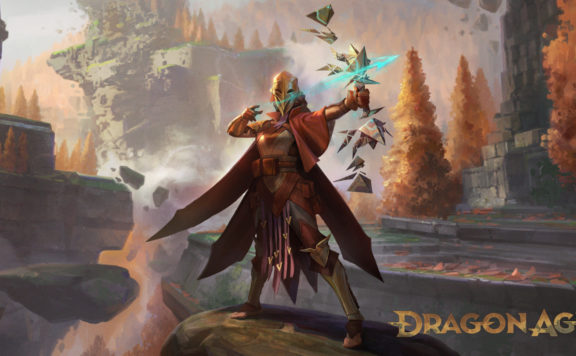The cryptocurrency industry has taken significant strides toward mainstream acceptance, including crypto gaming. A growing number of companies and organizations have started integrating crypto into their payment ecosystem or have included digital assets in their investment portfolios. As expected, Bitcoin is at the forefront of the movement. According to Zippia, approximately 15,000 businesses worldwide accept Bitcoin, despite constant fluctuations in BTC price and the infamous volatility of the crypto market. That includes large companies and corporations like Microsoft, Burger King, Wikipedia, ExpressVPN, and Virgin Galactic.
So, it comes as no surprise that cryptocurrencies have also made their way into the gaming industry, leading to the emergence of a new subgenre of blockchain-based games called crypto games. That’s how the play-to-earn (P2E) model has come to be one of the biggest trends in the gaming industry at the moment. Some go as far as saying that this could mark the start of a paradigm shift in the video game industry. As crypto gaming continues to gain ground, the widespread perception that playing video games is nothing but a waste of time or, at best, a mere hobby could change in the future. Classic video games might also get pushed to the back burner as the appeal of crypto games increases.
However, it’s still too soon to make predictions about how blockchain-based games will influence the industry as a whole in the future. For now, all we can do is get acquainted with crypto games and discover what they’re about. So, if you’re passionate about gaming but are entirely clueless about crypto games, here’s everything you need to know on the topic.
What is crypto gaming?
Crypto games bring the world of digital assets and gaming together by making it possible for players to earn non-fungible tokens (NFTs) or cryptocurrency as they play. These digital assets can then be traded for other digital assets or fiat money on crypto exchange platforms or online marketplaces.
While the concept of earning money by playing video games is not new and versed gamers are no strangers to the notion of tokenization, there is one important element that crypto games bring new to the table. With crypto games, all the items that a player earns, from digital currencies and avatars to weapons and experience (XP) are owned by the player and can therefore be valued as tradable assets, or they can be transferred and used in other crypto gaming projects. In contrast, conventional video games are centralized, so players can only use their experience and rewards within the game.

There are different ways for developers and players to leverage crypto gaming. Play-to-earn (P2E) is probably the most common and popular model in the genre. In P2E games, players have the possibility to make money by performing certain tasks and activities that will bring them rewards.
For example, they can buy tokens early on and sell them later when the game increases in popularity; or they can purchase characters, gradually develop them until they reach higher levels, and then sell them for a bigger price – a strategy adopted by Axie Infinity, one of the most popular crypto games at the moment. Other ways of earning rewards include completing different missions, like going on a kill quest or collecting certain assets.
While most game developers rely on selling in-game assets to make a profit, others resort to advertising to ensure a steady income stream. But there are also crypto gambling platforms where players can use their digital assets to play casino games.
Blockchain integration in gaming
Blockchain is often equated to cryptocurrencies, which is the most popular application. However, this innovative technology has many other use cases, being employed for a wide range of purposes that go well beyond digital assets. Blockchain integration in the gaming industry provides an excellent example in this respect.
Blockchain has revolutionized the gaming sector by introducing decentralization to the equation. Blockchain-based games change the entire gaming experience by giving players full control over their game data, allowing them to use it however they see fit. They can take their characters and use them in a different game, transfer items from one platform to another or sell assets to make a profit. One could never enjoy this level of freedom with traditional centralized games.
It’s also important to address the confusion between blockchain games and crypto games. Although these terms are often used interchangeably, a theoretical difference sets them apart. Blockchain gaming refers to the principles of decentralization, full ownership, and lack of censorship that underpin this new generation of video games. This is a theoretical notion that doesn’t factor in any financial implications. On the other hand, crypto gaming is all about money. That’s what draws people in the most – the possibility of making a profit as they play. Obviously, these two concepts are intertwined, and their meaning will likely change as the genre continues to expand and evolve.
Crypto games between pros and cons
The advantages provided by blockchain-based games are quite obvious. For starters, gaming goes beyond being a fun and enjoyable activity and becomes a profitable endeavor. This gives meaning and purpose to a pastime that was once regarded as the epitome of procrastination. The P2E model gives way to a world of possibilities for developers to create new and innovative projects. On top of that, one cannot ignore the broader implications, as crypto games represent one step further in blockchain and crypto adoption.
Unfortunately, there are also drawbacks to take into account. At the moment, most crypto games remain inaccessible to a large number of players due to their relatively high barrier to entry. Security concerns also pose an issue for both developers and players that remains to be addressed. Then there’s also the quality of the games that comes into question given that P2E games are still in their infancy and many of them cannot compete with conventional games in terms of quality and performance.
Crypto games are still new to many but they’re rapidly gaining ground, promising to revolutionize the entire gaming industry. Therefore, it’s worth keeping an eye on these innovative projects and watching them evolve in the years to come.







